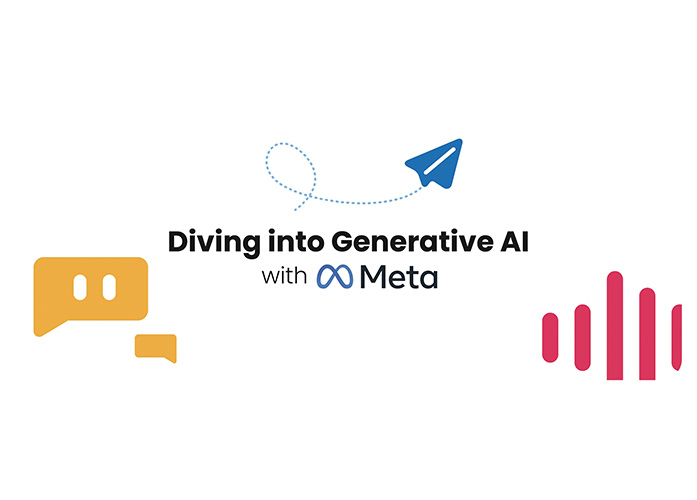
Generative AI is causing quite a stir, and everyone wants in from Snapchat and LinkedIn to YouTube and, of course, Meta, all of them are embracing generative AI and exploring new AI-powered features.
But today’s standout is Meta, charging ahead with numerous AI tests, showing no signs of slowing down.
The social media giant has unveiled several AI-driven features currently in testing across its platforms.
While chatbots are indeed a significant focus, they also address various dimensions.
Let’s delve into the details of each.
AI chatbots
Meta is introducing a unique range of AI-powered chatbots, each embodying distinct personas.
Picture this: you can have a conversation with one that speaks in the style of Abraham Lincoln, engaging in historical chit-chat, or perhaps seek travel advice from a chatbot with the laid-back, carefree vibes of a skateboarder.
These chatbots are designed to engage users in a human-like manner and will soon debut on Instagram and Facebook.
The second Campaign Saudi Briefing event of the year will be taking place in Riyadh on 12th October 2023. A variety of panels and speakers will be discussing the themes of media and marketing. For more details, click here.
Encouraging engagement
Meta has unveiled a slew of fresh features designed to encourage both private interactions through direct messages (DMs) and public interactions via post comments.
The platform is developing AI-generated summaries for DMs which will help users keep track of lengthy conversations and catch up on missed content quickly.
While it’s currently being tested exclusively on Instagram, it remains to be seen whether Meta will extend it to Messenger and WhatsApp as the testing phase progresses.
On the public front, the platform is reportedly exploring an option that enables users to generate AI-assisted comments. Specific details about the process are still undisclosed.

Creative tools
Meta is actively working on a range of AI-powered visual creation tools across Instagram.
Among these tools, there’s an AI-image editing feature for Stories.
You’ll find the Restyle tool, allowing users to transform their images into diverse visual styles.
There is also the ‘AI brush’, a handy tool that enables users to simply enhance or replace specific parts of their images, making unwanted photo intruders a thing of the past.
Meta is also cooking up a native AI image generator for Instagram. With this tool, you can input a text prompt, and it will transform it into captivating images ready for posting.
To add a touch of interactive creativity, generative AI Stickers for Stories are also in the works, allowing users to craft their own stickers for more engagement fun.
Music and audio enhancement
Meta is also stepping into the realm of music and audio with two key components.
First, there’s Voicebox, a versatile generative AI model designed for speech recognition, generation, editing, sampling and stylisation while preserving the original content and style.
Next up is AudioCraft, an open-source generative AI framework for music and audio. It consists of three models: MusicGen, AudioGen and EnCodec.
This framework allows users to effortlessly produce high-quality audio and music based on text prompts. It’s music and audio creation made simple.
Transparency and accuracy
Meta seems to be keen on aligning its AI-powered tools with the principles of transparency and accuracy.
That’s where Shepherd LLM comes into play, a precision-enhancing tool for generative AI responses.
It identifies inaccuracies and suggests improvements, essentially serving as a feedback mechanism for refining AI-generated content.
Meta is rolling out AI-Generated Content Labels for posts produced or modified by AI, helping users differentiate between human and AI-generated material.
The social platform has recently included a comprehensive overview of generative AI in the Privacy Center. This section explains AI model training and the role of user data in the process.
Within the same section, users have the option to opt out of their personal data being used in AI model training, thereby granting them enhanced control over their information.
In a nutshell, Meta’s venture into generative AI opens a treasure chest of endless possibilities, and we’re excited to have the front-row seats to witness how it all unfolds.
By Ala Shashaa, Data & Insights Director at Netizency









